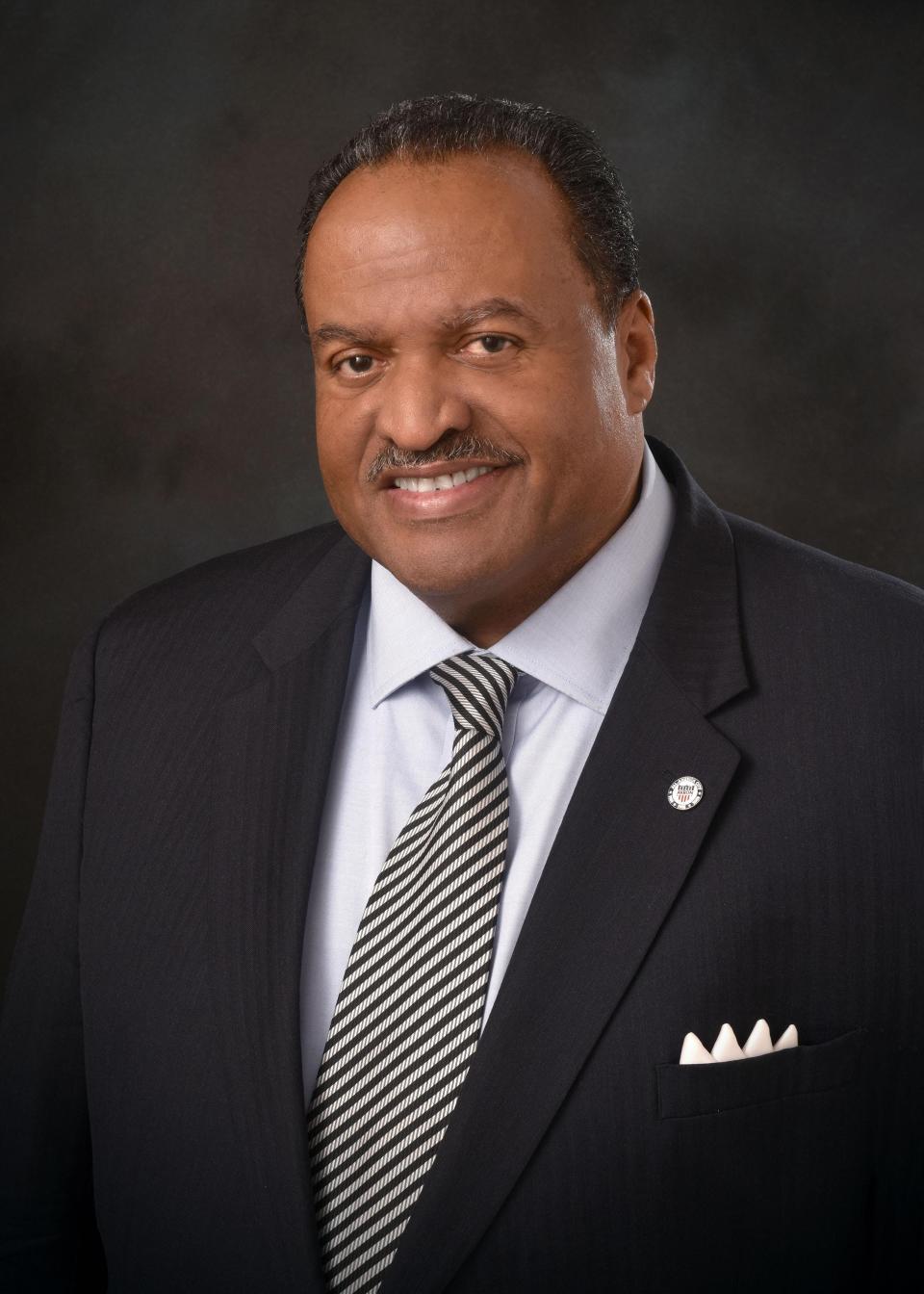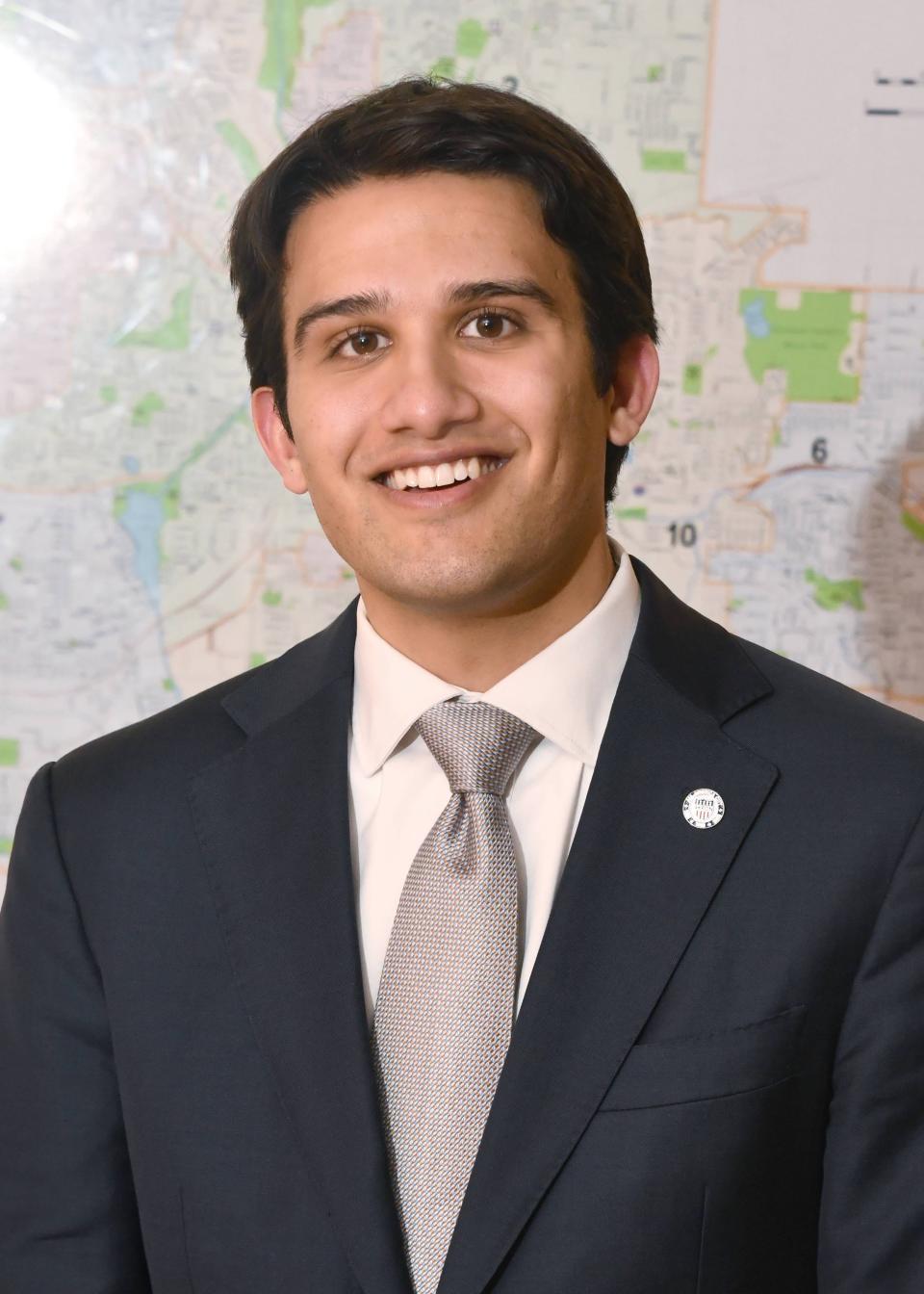Could police union block police reform efforts if Akron voters approve Issue 10?
Critics say a vote next month to redefine police oversight in Akron cannot be cast without considering how the city might deal with the dilemma it could create.
Passage of Issue 10 this November would give Akron City Council specific instructions to rewrite the authority and scope of the city’s new civilian review board and existing police auditor.
But some argue there’s a catch that significantly undercuts the promise of reform. According to the petition language circulated to get the measure on the ballot, new rules for the board and auditor “shall be interpreted and applied in a manner that is consistent with the terms of any relevant collective bargaining agreement.”
New laws permitting the board or auditor to investigate misconduct or citizen complaints before police have completely reviewed them or to recommend specific discipline for officers — which are powers expressly envisioned by the petitioners — could conflict with provisions of the police union contract that detail how internal investigations and progressive discipline are to be handled.
If the new board and auditor's office act as the petition intends, the Fraternal Order of Police Lodge No. 7 could file a grievance for violating the contract, similar to how the union is arguing that state investigators in the Jayland Walker shooting are stealing work from Akron officers who normally look into officer-involved shootings.
If city and FOP officials fail to resolve the grievance, an arbitrator could issue a binding decision. If arbitration fails, the matter could result in lawsuits like those filed or threatened in other cities that have tried to implement external oversight of their police departments.
And Mayor Dan Horrigan’s administration, which opposed the charter amendment in favor of passing its own ordinance last week, has already identified possible contract violations if the petitioners get everything they want.
Union could sue to block external oversight
Union attorneys would review whatever City Council legislates if Issue 10 passes, FOP President Clay Cozart told the Beacon Journal in late August as petitioners gathered signatures to put the charter amendment on the ballot.
That legislative process would have to be completed by June, after the city votes on the mayoral candidates in the May primary. (Horrigan announced last week that he is not seeking reelection.)
But Cozart is already skeptical of the charter amendment before voters get a chance to weigh in. Boiled down language on the ballot won't say so, but the petition behind the measure says the new board and auditor’s office “shall have the authority to compel the attendance and testimony of witnesses and the production of documents, photographs, audio recordings, electronic files, and other tangible evidence ...”
“They're not going to be able to make an officer come talk to them,” Cozart said, citing labor contract language and the U.S. Constitution. “(And) they can't be doing shadow investigations."
That’s the crux of the issue, said Marco Sommerville, who is running for mayor and has been involved with strengthening the police auditor's position for years. Supporters are promising more accountability than Issue 10 can deliver, he said.

“The main sponsor, who has been advocating for (the charter amendment), has said to me that there's parts of it that don't work. And they agree on that, but they still put it on the ballot,” Sommerville said of his conversations with Ward 8 Councilman Shammas Malik, a lead proponent of the charter amendment who's also running for mayor next year.
Malik denied Sommerville's claims.
“I don't agree that there's some Catch-22 in this,” Malik said.

Though not the only candidates running for mayor, Malik and Sommerville have dedicated significant time within City Hall on the issue of police accountability and oversight, particularly since discussion of reform surged after the 2020 murder of George Floyd in Minneapolis and, with renewed conviction, the shooting death of Jayland Walker by Akron police this summer.
Sommerville, the deputy mayor for intergovernmental affairs, and others in Horrigan's Cabinet met Wednesday with Cleveland Mayor Justin Bibb's senior team. Cleveland, among 160 U.S. cities with a civilian review board, is currently trying to deliver on a 2021 charter amendment that, as passed by 60% of voters, would give Cleveland's Civilian Police Review Board sweeping authority over discipline, policy and training.
Bibb was the only mayoral candidate last year to support the charter amendment, even as the Cleveland police union vowed to sue if voters approved it. Sommerville, who has fought the Akron Police Department for years to get Auditor Phil Young better access to police records, doesn't want to see Akron in the same predicament.
“The time is right to have a citizen review board,” Sommerville said. “But the way that the charter amendment is set up, it’s not going to give people what they say they're going to be able to do. And that sort of thing I don't like: the fact that we're telling people something that they can't do.”
Issue 10 would not go nearly as far as the Cleveland plan. Under Akron's ballot initiative, the review board would only recommend discipline and mostly review completed investigations, one of the plan's architects said.
City did not address contract conflict in latest negotiations
Malik said he believes the ballot initiative doesn't conflict with the FOP contract.
“People can make an argument that just the general function of civilian oversight or a police auditor role violates the current collective bargaining agreement. Right?” Malik said. “But I don't think there's anything in there that directly, explicitly conflicts."
Earlier this year as City Council was asked to approve pay raises in the new three-year FOP contract, the first-term councilman and attorney questioned Horrigan's team about whether they explored potential conflicts during contract negotiations, especially considering that City Council and the mayor's Racial Equity and Social Justice Taskforce have discussed the creation of a civilian review board since 2020.
"When we discussed the collective bargaining agreement earlier this year, the new three-year extension," Malik said, "I specifically brought this up and I specifically said, 'If we are going to move forward with this as a priority of the community, then we should make sure that it is affirmatively stated in the agreement that this is permitted' ... exactly to avoid this kind of issue."
"I can't remember every detail," Deputy Mayor for Labor Relations Frank Williams told Malik in that committee meeting in May.
"Every aspect and every concern brought on by the city" was voiced at the bargaining table, Williams continued. But "I don't think any language in the contract or the proposed contract addresses anything that has to do with the civilian review board."
Would Malik or Sommerville challenge the FOP contract?
Malik supports the charter amendment as a more independent approach to oversight. Unlike Horrigan's plan, which Malik voted for in the short-term, the charter amendment would give City Council more say than the mayor in appointing review board members. In addition, the board members would get more say than council or the mayor in hiring the auditor.
Like Horrigan's plan, which was introduced within hours of the charter amendment, Malik's plan — backed by the Akron NAACP and other community groups — also beefs up staffing in the auditor's office and puts the auditor's role in the city code of ordinances.
But unlike Horrigan, Malik has said it might be time to renegotiate the police union contract. However, the FOP can't be forced to bargain until the newly extended contract expires in 2024 per a provision that requires both sides to agree to interim negotiations.
Sommerville said he's not sure if he'd push the police union for contract language that would allow for stronger external oversight if he's elected mayor.
"I don't know what I would do, to be truthful," Sommerville said. "But what I do know is that whatever we come up with, we're going to have to have the police department buy into it. The department's got to buy into some of that.
"And I think we need to sit down to see where's common ground and then work from there."
Malik agreed the city needs to "make sure that everyone is on the same page."
"Right now, it isn't clear exactly what is permitted and prohibited by the contract," he said. "So that's why there's all this uncertainty and all of these arguments made."
Reach reporter Doug Livingston at dlivingston@thebeaconjournal.com or 330-996-3792.
This article originally appeared on Akron Beacon Journal: Critics say Issue 10 civilian police review board promises too much

